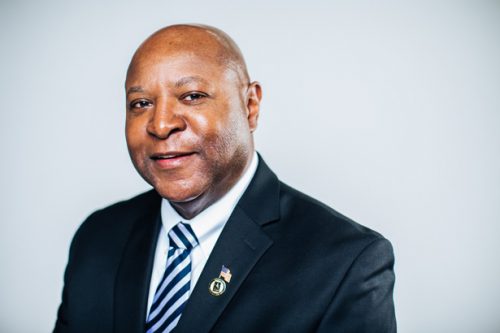
Oregon voters face a decision regarding the future of health care when they go to the polls for the Jan. 23 special election. Measure 101 asks voters to approve funding for health care for Oregonians. The measure has more than 160 organizations endorsing it, according to the Yes for Healthcare campaign PAC, which has raised more than $1.8 million to support the passage of 101.
Specifically, Measure 101 itself would garner between $210 million and $320 million for health care from the Oregon health care industry, according to progressive think-tank Oregon Center for Public Policy (OCPP), by adding 0.7 percent to the existing 5.3 percent hospital assessment and establishing a 1.5 percent assessment on health insurers, managed care companies and the Public Employees Benefit Board.
OCPP says the previous health insurance company assessment, which helped pay for health care in Oregon, expired in 2014.
A “yes” vote will allow the funding to go into effect. A “no” vote could result in as many as 350,000 Oregonians losing their health care, according to state Sen. James Manning, a Democrat representing District 7 in Lane County.
“There’s only a small segment of the population that for whatever reason doesn’t want Oregonians to have health coverage,” Manning says. “So if this measure does fail, possibly 350,000 Oregonians will lose health coverage and over 66,000 children that are covered under the Oregon Health Plan will potentially lose their health insurance as well.”
Manning, along with Sen. Lee Beyer and Rep. Julie Fahey, will host a town hall at the Viking Sal Senior Center in Junction City on Jan. 4.
“I want to make sure that we answer any questions that anybody may have regarding Measure 101 and [that voters] understand the severity if the measure doesn’t get passed,” Manning says.
Locally, Republican Rep. Cedric Hayden from Roseburg has campaigned against the measure.
When the Affordable Care Act (ACA) was signed into law in 2010, it allowed a Medicaid expansion funded by federal dollars that helped bolster Oregon’s health care industry. In 2017, federal dollars no longer paid 100 percent of the expansion, forcing legislators to find new ways to fund the recently expanded and revamped public health care system.
The fiscal impact statement for the measure estimates that the state would lose hundreds of millions of dollars in revenue from federal matching Medicaid funds.
“If it doesn’t happen we are going to lose a big chunk of funding,” Robert Duehmig, board president of the Oregon Rural Health Association says. “Not just state funding but the billions of dollars of federal funding too.”
Supporters of the measure are adamant that this tax is vital to continue insuring the most vulnerable Oregonians. Recent expansion of Medicaid has helped insure one in five Oregonians.
Manning says the major stakeholders — hospitals and insurance companies — agreed to the tax. “Some people, for whatever reason, they don’t want children who may not be documented to get health care. That’s evil and it’s morally criminal.”
Some of the top donors to the Yes for Healthcare campaign include Willamette Valley Community Health, LLC, which gave $100,000, and Oregon Association of Hospitals and Health Systems, which contributed $90,000.
A number of rural communities are standing behind Measure 101 as well. “When it comes to health care, access to health care and the importance of families being covered, it works in rural Oregon like it does in urban Oregon,” Duehmig says.
Expanded and affordable health care is important for the nearly 400,000 children who rely on Medicaid in Oregon. Duehmig writes in support of the measure that Medicaid also insures more than a third of families in some rural parts of the state.
Duehmig and other supporters say Measure 101 will stabilize markets and protect Medicaid moving forward.
Public support for the measure has reached the ears of lawmakers on both sides of the political spectrum. Sens. Peter Courtney (D-Salem) and Ted Ferrioli (R-John Day) both support the measure and encourage voters to do the same.
“As the Democratic Senate President, and the Senate Republican Leader, we don’t always agree. But on Measure 101, there’s no question: Oregonians should vote YES,” Courtney and Ferrioli write in an endorsement in the special election’s Voters’ Pamphlet. “Oregon has a plan for funding healthcare that really works for all of us. That plan is Measure 101.”
In addition to the Jan. 4 town hall in Junction City, the League of Women Voters Lane County, together with the Springfield City Club and Wildish Community Theater, is sponsoring a forum on 101 at 7 pm Tuesday, Jan. 9, at the Wildish Theater, 630 Main Street in Springfield. Hayden will speak in opposition to Measure 101 and Rep. John Lively will speak in support.
LWVLC is holding a second forum noon Thursday, Jan. 11, at the Valley River Inn, 1000 Valley River Way. A buffet lunch is available for $17; beverage only is $5. If you attend the Jan. 11 luncheon, LWV asks you call and say whether you will be lunching, just want a beverage or simply plan to attend. Call 541-343-7917 or email league@lwvlc.org.
By Corinne Boyer and Max Thornberry